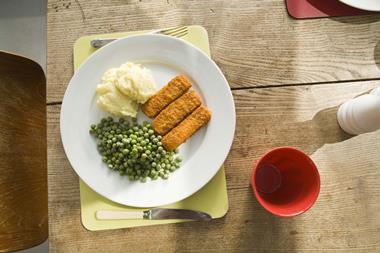Independent convenience retailers are braced for being plunged into the centre of the health debate.
Neighbourhood store operators are worried the spotlight is turning on them now that manufacturers and major multiples are implementing programmes to help tackle the nation's obesity, which costs the NHS more than £1bn a year.
More than two thirds of the Top 50 independent chains contacted by The Grocer fear the government could introduce legislation targeting the sector, which is already struggling with excessive red tape and supermarket competition.
"If politicians interfered too much there would be a backlash but unfortunately I do think further legislation is likely," said one Top 50 member. Another added: "The best thing for the industry would be self-regulation but the government has already shown its track record on preferring legislation."
The Department of Health sees small store retailers as playing a key role in promoting healthy eating thanks to their position at the heart of the community. Public health minister Caroline Flint told The Grocer she was working with the BRC and ACS and wanted "to see outcomes".
The BRC has just produced a paper highlighting some principles for small stores. According to food policy director Andrew Opie, representatives from the DH and Department of Culture, Media and Sport have requested to see the paper. But incoming ACS chief executive James Lowman warned that government should not take a prescriptive approach.
"It is better to discuss, share information on the opportunities and let retailers think about whether it is pertinent to their business than imposing guidelines."
North of the border the Scottish Executive is funding phase three of the Healthy Living Programme run by the Scottish Grocers' Federation. Co-ordinator Ross Kerr said another 45 stores were coming on board on top of 199 in the first phases. Retailers have seen major increases in fresh sales, with some achieving 750% uplifts.
Key has been the Executive's help. "It's been really progressive with support for things like chiller cabinets and a training CD-Rom," said Opie. "This is a role the government may like to think about."
But Neill Sherrell, MD of convenience specialist Srcg, says the sales increases were from a small base. "Fresh sales in convenience are very low, in the single figures in terms of percentage. And there's still a lot of work in getting the convenience offer right in the first place - basics like availability, range, pricing - before buying into health."
Tyne & Wear retailer Mills Group has found sales have leapt to more than £500 a week per store where it has tested dedicated healthy snacks units. Sales of impulse confectionery lines have declined £200 per week in the same stores.
Londis retailer Shamus Lehal said customers were beginning to move away from carbonated drinks and towards mineral water, but confectionery and crisps were very profitable. "I am not going to put fruit and veg by the counter. If the government thinks we can force people to change their minds by what we stock it is wrong. We can only provide what customers want."



















No comments yet